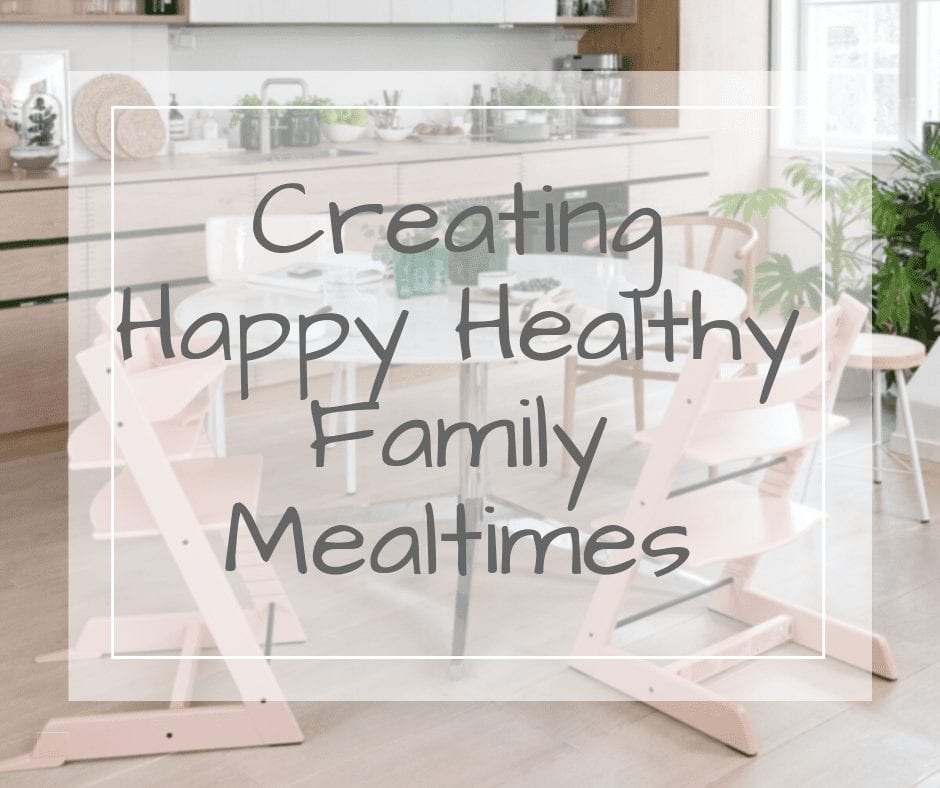Establishing a healthy relationship with food is important from a young age, but encouraging our children to eat healthily can feel like a constant battle for many parents. I know it often does for me!! Recent research from leading Scandinavian nursery brand Stokke has found that just half of us typically enjoy family mealtimes at the dinner table, I struggle with getting my fussy eater to try new foods and eat healthy options. So whilst we do often get to eat together I often don’t enjoy it and it can be a stressful part of the day. A Quarter of families ‘eat dinner in front of TV every day a study has found. Just half enjoy a family meal at the dinner table and one in ten parents admits to letting children under 14 eat alone in their rooms. Meanwhile, although 86 per cent of parents say they believe it is important to eat dinner as a family, just two in five say they eat together every night, according to the report from nursery brand Stokke.
Leading Nutritionist, Charlotte Stirling-Reed reveals the bad habits that we are teaching our children at mealtimes and how to do things right.

Charlotte Stirling-Reed, a specialist in child nutrition (she is also the nutritionist on Joe Wicks new book out May 2020) is working to help families create healthier and happier mealtimes and ensure that our children pick up the right ideas about what to eat and how to eat. With that in mind here she has shared with us 9 bad habits’ that we’re teaching our little ones at the dinner table and offers her advice on how we can fix this to create a more positive mealtime experience for our family.
Not eating together
The biggest bad habit we are all guilty of. Simple but often challenging, aiming to eat to sit and eat together whenever possible is the first step to healthy, happy mealtimes! Children learn the skills of eating, social skills and even what foods they enjoy by first copying others.
“The idea of eating together as a family for every meal will probably seem unrealistic for most of us. However, whenever we can, it’s really worthwhile making the most of time together eating, as infants and toddlers pick up so much about what to eat and how to eat from watching us and others around them at mealtimes. I love the idea of family mealtimes, whenever possible. Even if this just means mum or dad sitting down with baby or grandparents joining children at the table while they eat after school. It all can make a big impact on the enjoyment of mealtimes.”
Setting a bad example
If your own diet consists of chips and fried chicken, your children will soon pick up on that and want the same themselves. So even if it means changing some of your eating habits, it’s important that your child has an opportunity to see you eating and enjoying a healthy diet. Try to eat together as much as possible and if you struggle with healthy foods try to involve other family members who you know eat well. Role models have a massive influence on baby and toddler eating habits! Lead by example
Setting too many mealtime rules
Making mealtimes too pressured and setting mealtimes rules, such as clearing your plate, eating all your vegetables first, or sitting at the table until everyone has finished, can end up making mealtimes less enjoyable for kids. Instead, stick to rules that you know are 100% necessary and matter to you and avoid too much pressure for children to ‘eat up’ their meal. It’s good to keep mealtimes light and enjoyable to help children want to be a part of them.
Making separate meals
It is not uncommon for parents to make separate meals for everyone in the family, or even for parents to create multiple meals for a single child at dinnertime, only to have each and every one rejected. This isn’t good for your child, for your sanity as a parent. To avoid allowing dinnertime to become a dreaded battle and help your fussy child, offer a choice between one or two HEALTHY options. For example, do you want Weetabix or Porridge? Or, do you want potatoes or pasta today? This way, you’re allowing them some independence whilst still being in control of they food they’re eating. Alternatively, try and have one option that everyone eats. It’s good for you and your children to eat the same meals, and see you eating similar foods to encourage them to eat a wide variety themselves.
 Offering too many alternatives
Offering too many alternatives
Research has shown time and time again that babies and children learn to like what is familiar to them. If you offer your child broccoli and they reject it and you never offer it again, they won’t EVER learn to like it and their diet is being restricted! Next time a meal is refused, without much comment put it in the fridge for later. Offering alternatives only teaches children that they can control the food they eat, and as soon as they understand this they will exploit it to the maximum.
Giving all your attention to the fussy eater
In most instances, any attention given to food refusal simply encourages it, so don’t give all your attention to the fussy eater! Instead, give your attention to the people around the table, whether it be dad, brother or sister, who are eating well and enjoying their food. Offer lots of praise for good eating behaviour, such as ‘well done daddy, you’ve eaten ALL your broccoli’, and talk about the aspects of the meal you enjoyed. It might not work straight away, but your child will finally realise that they get more attention at dinner from eating well than from being fussy. Another reason to try and get the whole family sitting together at the dinner table, if this can’t happen every day in your family try and make an effort to do so at least once a week.
Forcing or coaxing your child into eating
Avoid trying to force or coax your child into eating, even if you’re worried they’re not consuming enough food. It can establish a negative relationship with food, and can also be dangerous. Young children are actually excellent at knowing when they are hungry and when they are full. If we override these signals, they are likely to have less understanding of their appetite as they grow older.
Using distractions such as televisions, toys or phones
According to the research undertaken by Stokke, over two thirds of parents try to use distractions to get their children to eat something unconsciously. However, this simply teaches your children that food is bad or unimportant. Even if distractions might make feeding slightly easier in that moment it time, using them tells children that eating is something we need to ‘be over and done with’ as quickly as possible. They also distract from what can be an important social occasion for a family too. Often, this also sets yourself up for difficulties in the future as your child experiences eating in new situations, for instance at friend’s house or at nursery. If you want your child to grow up to love their food, you need to show them that the delicious and varied foods you eat at home are worth attention and time
Offering the same foods every week
It’s SO easy to get stuck offering the same foods each week, but boredom is one of the biggest reasons for children going off food and acting up at the dinner table. By offering a variety of foods, not only are you exposing your children to a variety of tastes, flavours and nutrients, but you’re also preventing them getting fed up. This is definitely easier said than done so try making some bulk meals at the weekend and then tapping into them during the week. Menu plans can really work for some families too!
How many of these did you recognise from your family mealtimes?
I am on at least six and that is probably only because Charlotte didn’t mention mummy having her phone at the table – although maybe that comes under setting a bad example. I am not alone though as as many as three quarters of parents admit to keeping their phones on the table during dinner. Men are worse offenders than women, with 81 per cent of fathers keeping their phone on the table compared with 71 percent of women. Stine Brogaard from Stokke, said:
“Eating together as family is so important and however tempting it might be to have a phone or tablet there to entertain your child, it’s important for parents to take the time to talk to their little one, educate them on their food and chat at this special time of day. With work commitments it’s often so difficult for parents to get time to spend with their children so, no matter how old, from babies to teenagers – make an effort to talk about things, have a joke and listen.”
It is hard to do and so tempting to do some of things Charlotte has highlighted above. Thank you so much to Charlotte Stirling-Reed for sharing these bad habits with us and more importantly some fab ideas for how we can undo them and create happier healthier family mealtimes






I really love this post. My son is a fussy eater and it’s extremely stressful. I’ve spoken to nutritionist and health visitors and the key thing they told me is that no child ever starves themselves, and do not offer alternatives, which i was guilty of doing, literally offering three or four different meals to get him to eat something, which often led me to tiers from pure stress. Things have greatly improved since following the advice i was given, his still not great with veg, but he is trying, i’m determind to get him to love veg and although he often just plays with it, or bites into then spits it out, i will not give up!
One of my son’s is so fussy so I hear you on how stressful it can be! Another tip I read was that you put veggies on the plate everyday no matter what. If they say I dont like that then you just say ok no problem dont eat it just leave it on the plate. The theory is it just normalises vegetables for them and takes the pressure off. Good luck with it
Great tips – We are having three sittings for dinner tonight and 4 different meals. ‘Nuff said. #Dreamteam
I expect we might end up that way too as kids get older and have more stuff going on, but for now at least we will try to have just one sitting most of the time 😉 #DreamTeam
Some great advice here. We eat 90% of our meals together at the table together but have to make such an effort not to make a big deal over our fussy eaters behaviour! #dreamteam
Chatting to you at blogon I recognised so much of my fussy eaters behaviour in your experience and it made me feel much better actually about the fact that I often do find eating as a family stressful even thought I know there are benefits. #DreamTeam
I am tempted to say perhaps we do worry slightly too much these days. Of course healthy eating is important but guidelines seem to change and I often question who is funding research reports into what and is not correct. What I do know is that parents and mums in particular I think beat themselves up for being less than perfect on meals just as so many other issues. I also think poverty plays its part with so many families struggling to pay for food or so busy trying to generate a decent income that perfection if it can be achieved at all has to go by the wayside a bit. Not having a go at your post at all – you just reminded me of the pressure on parents of younger children in particular #DreamTeam
Kate I totally agree and I am aware I am coming at this from the point of view of someone who is lucky to be able to have what really is the luxury of us all eating together. I should certainly try to be more aware that this isn’t the experience that everyone has and I know we are all just doing our best. My fussy eater tends to make meal times quite a stressful thing so for me any tips from anywhere are helpful, but I totally hear what you are saying and hope that no one feels judged after reading. Kxx #DreamTeam
This is such a useful read. We have mealtimes together on most days (evening meal) and it’s such an important part of our day. I will follow some of the other useful advice here too x #DreamTeam
I hope as my kids get older our family mealtimes will become slightly less hectic so I can enjoy them too, but I can definitely see already how important it is. Great to see you back with us too on the #DreamTeam
Thank you for the very useful advice. I think I’ve been conscious for a while that we had been exhibiting some of these bad behaviors, so we have been working to improve on them over the past 6 months. My 2 year old definitely eats a lot better when we have the same meal and eat together … she will even eat her veggies, shock horror! Thanks for sharing #DreamTeam
I am really trying to be better about not cooking separate meals for everyone as my middle son is so fussy. #DreamTeam
Great points!
Some of my favorite family memories happened around our dining room table!
Same here with my parents and sister #DreamTeam
It really isn’t straightforward is it? Our boy is a fussy eater and our daughter is now a veggie (I adore meat!!), so we are doing vegetarian a couple of times a week. No phones is a must!! #DreamTeam
The fussy eater is killing me!! Sometimes I just have to do him something different even though I don’t want to
Really important topic I think – such a huge influence on so much of what happens later on in life and how we relate to food #dreamteam
Totally. My family didn’t eat together every night as my father often worked late, but we did have weekend meals together and still today the way we spend time together and connect is over food! #DreamTeam
Great post! Very informative. It’s not easy to stick to good eating habits but we always try as best we can. #dreamteam
We all just do our best with everything and there is nothing else we can do. #DreamTeam
There are some great tips here and they all make sense. We can only manage to eat together as a whole family at the weekend as my husband doesn’t get home til late during the week. I try to make a point of sitting with my children at meal times, but my youngest is 18 months, and when he’s in his highchair it’s the only time I get to quickly tidy round the kitchen and do odd jobs like the washing up from earlier in the day. That means that I usually eat my meals quite quickly and then get up from the table and start trying to get back on top of things. We’re all in the same room, but it’s not the same as sitting together. I’m hoping this will all change as he gets older though (maybe?!). #dreamteam
I think we all do what we can! I am quite often running around too whilst the kids and my husband get started with dinner. Also sometimes the kids just wind me up at dinner and I have to take a minute out! #DreamTeam
When I ran my daycare, nutrition and meal times was crucial to me – I knew so many parents struggled with it at home. It was always fun to have the parents visit for a meal and see how their children all ate together and enjoyed a meal. I love these ideas, especially the one about not fussing over the fussy eater. For my fussy eaters I would serve their plate, or have them serve if they were old enough, and they had to take one bite of everything. One bite. After that, I let the issue go. then I would serve that item again and again in future meals so they could get used to it. Stress is what kills the mealtime for everyone. #DreamTeam
That is what I am trying to do with my fussy eater. I still put it on his plate, but I don’t get into a big thing with him if he doesn’t eat it. I read that this normalises the thing they don’t like and eventually they may start to eat it…
Oops – we’re guilty of lots of these. We don’t eat with the kids either as it’s not relaxing AT ALL! #DreamTeam
We have days off from eating with the kids as it does do my head in sometimes! #DreamTeam
Totally agree with these points. I have never cooked different meals but often struggle to get one in particular to eat what we all eat. My kids drive often drive us batty at the dinner table and so hubby really has to encourage me to sit and eat with them after a long day! #dreamteam